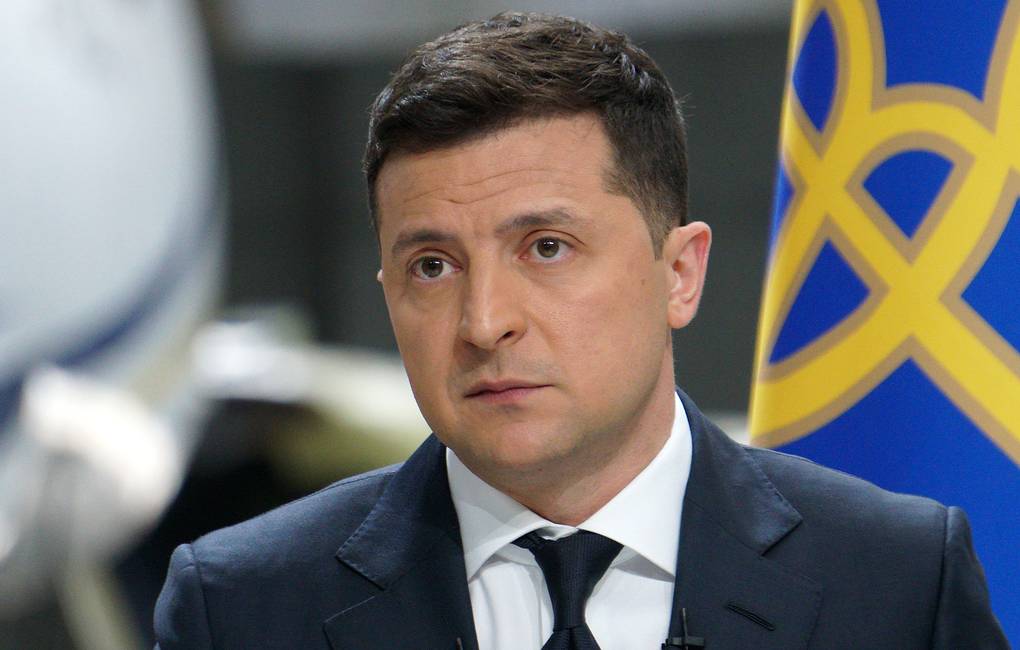
By Etim Etim
Leaders respond differently in moments of crisis. Some buckle, cringe or stay aloof and unconcerned, others abandon ship and run away while some rise up to the challenge and forge a new nation or organization from the experience.
The ongoing wars in Europe and the Middle East offer us a chance to examine the role of effective leadership in a moment of national challenge. On February 24, 2022, the Russian military invaded Ukraine, setting off the biggest attack on a European country since the Second World War. Hundreds of thousands of Ukrainian civilians and troops have been killed and injured, about eight million Ukrainians have been internally displaced and 8.2 million have fled the country. The losses on both sides are mounting and there are no indications of when the fight would end. However, the leadership style of the Ukrainian President, Volodymyr Zelensky, in this moment of immense national disaster has captured the world’s imagination. He embodies valour and resilience, two important leadership traits required in times of turmoil.

Zelensky, 45, was a TV actor who used to play president of his country in drama skits before he was elected in 2019. When the Russian tanks rolled into his country last year, many were not sure of how he would respond. Eighteen months on, Zelensky has acquitted himself as a leader made for the moment, leading his people to confront a superpower which is waging the biggest land assault in recent history. Zelensky has inspired thousands of his compatriots to fight for their motherland, motivated many from foreign lands into his army and forged an international campaign to bolster military and financial support. The world has come to admire Zelensky – who has since replaced his business suits with fatigue – hoping from plane to plane, visiting foreign capitals, meeting heads of states, addressing parliaments and global audiences and securing the backing of NATO, EU, G7, G20 and other organizations and countries. His speeches have succeeded in sensitizing the world to the dangers of Vladimir Putin seizing his country.
He makes nightly radio address to his citizens to apprise them of developments and offer words of comfort and succor, visits troops at the frontlines and the wounded soldiers in the hospitals. Additionally, he makes regular visits to homes of people who have lost loved ones to comfort and condole. Last December, Time magazine named him ‘’Person of the Year’’ for the courage he’s shown in leading his country. That edition is one of my favourite copies in a long time. ‘’Zelensky’s success as a wartime leader has relied on the fact that courage is contagious. It spreads through Ukraine’s political leadership in the first days of the invasion, as everyone realized the President has stuck around’’, the magazine’s Simon Shuster wrote in the cover article.
In the early hours of Saturday, October 7, 2023, hundreds of Hamas terrorists breached Israel’s hi-tech intelligence systems and entered the country from the Gaza Strip to launch the most brazen and audacious attacks against the only Jewish nation. Coming exactly 50 years after the Yom Kippur war of October 1973, the assaults were meant to subdue and break Israel. Over 1,300 Israelis lost their lives and about 150 persons of different nationalities were taken hostage. Before the attacks, Israel was in deep political turmoil over Benjamin Netanyahu’s policy on judicial reforms in which he sought to curb the powers of the Supreme Court which many viewed as a power grab and his attempt to intimidate the justices and thwart his ongoing corruption trial.
The protests against the policy were widespread and even army personnel and reservists had threatened to join. The prime minister became the most despised politician in the country. Some observers are quick to blame the political turmoil in Israel for the monumental intelligence failure that enabled the terrorists to train for months across the wall in Gaza and enter Israel undetected. But it was a different Netanyahu that we’ve seen after the attacks. He has responded swiftly and impressively to the crisis by bringing the country together and rallying the citizens for what would definitely be a long and difficult war against the terrorists. The Prime Minister soon set up a government of emergency Israeli unity and war cabinet, bringing in opposition politicians into the government. A polarized and divided nation soon came together, ready to go to war to achieve a common goal. By the weekend, the PM was visiting troops at the frontline, encouraging them to achieve victory and protect their country.
Providing effective leadership in times severe challenges is one of the most important functions of a leader which is central to the success of a country or an organization. Whether it is famine, war or outbreak of diseases, national leaders must possess the resilience, rigour, adaptability with which to rise to the occasion and steer the country through uncertainty. Business leaders also require the same set of competencies to face whatever crisis that may arise. Indeed, the saying that real leaders are forged in crisis signifies how crucial effective leadership is in times of serve challenges. Effective crisis management entails the ability to make quick decision while inspiring trust and confidence in the team. History is full of leaders who have excelled or failed in difficult times. In the United States, President George Bush and Rudy Giuliani are renowned for their inspiring leaderships after the terrorist attacks of September 11, 2001. UK Prime Minister Winston Churchill and US President Franklin Roosevelt also led impressively well during the Second World War to defeat the Nazis.
A few days after the Hamas attacks, President Joe Biden spoke to families of Americans who were taken hostage. The President explained that it was important that he showed compassion and empathy. In all the 13 years since 2010 that this country has suffered brutal attacks under Boko Haram, no Nigerian President had ever bothered to meet with, or speak to families of victims. President Muhammadu Buhari was notoriously so aloof and unconcerned about the slaughter of Nigerians by Fulani militias in some parts of the country, especially in the North Central, that I suspect that he had severe Empathy Deficit Disorder (EDD).
While Dr. Goodluck Jonathan was commended for touring flooded states in 2012 to sympathize and comfort displaced people, and celebrated for rising promptly to defend the country against Ebola outbreak in 2014, his handling of the abduction of the Chibok girls that same year left a lot to be desired. It was one of the reasons he lost the 2015 election. President Buhari provided fantastic leadership during the COVID-19 pandemic, ensuring that the country prepared adequately for the disease, thus saving thousands of lives, his responses to the many militant and militia attacks in parts of the country, especially Benue, Plateau and North Western States were, at best, sloppy. So many died under his watch, yet he did little or nothing to stop the carnage, and he showed little or no concern to families of the victims.
Businesses could also face serious crisis due to cyber crimes, loss of a key staff, fire, a major fraud and regulatory infractions, etc. It is important for businesses to have a well-prepared standard manual for managing crisis. This manual typically outlines important steps to follow in case of an emergency or problems. In 2002, a bank I worked for as Head of Corporate Communication fell into a major crisis when the CBN suspended it, and a few others, from the foreign exchange market for some months for flouting some regulatory guidelines. It was a major crisis in the industry and the panic was noticeable. The executive management handled the crisis superbly and from it we learned many lessons in crisis management. Soon after, we developed a manual on crisis management for the institution. Effective communication is an important ingredient in managing crisis in an organization or a country.
The jury is still out on how well the incumbent president is leading the country in this very moment of monumental economic and security difficulties. The first step is for President Tinubu to build a broad national consensus on how best to face this moment.




GIPHY App Key not set. Please check settings